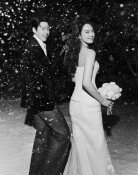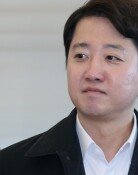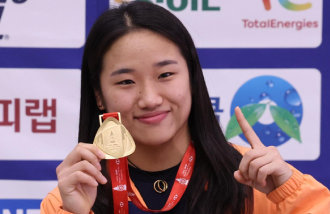Expert Comments

GREETING
I am honored to begin my work as a member of the newly constituted Evaluation Board for Donga.com's foreign language sites. Every fortnight, I will evaluate the English Donga.com and present my suggestions for improving the site in this space. Over time, I hope that this series of articles will contribute to making English Donga.com a "key resource" for news and information about Korea in English. The articles will address three major issues: content, language use, and design and technical issues. I will begin each article with an overall evaluation of these three issues, with a focus on improving specific points in each category. This will be followed by a discussion of a specific issue that may or may not be related to what is discussed at the beginning of the article. This format will vary somewhat depending on the timing of updates and changes in Donga.com services. In some cases, the discussion may be omitted if the overall evaluation is lengthy. Finally, I encourage readers to send comments and suggestions to me. I will make every effort to include your ideas in future articles.
OVERALL EVALUATION
1. Contents
A glance at English Donga.com reveals an immediate problem with how the news and information is categorized. Compared with Korean Donga.com and other online news sources, English Donga.com contains relatively few categories of news. There are only six categories of news and each is relatively simple.
I think that relatively few English-reading foreigners, for example, are interested in Korean sports news. Korean learners of English may be more interested in this topic, but this does not justify the emphasis on sports in the current format. To broaden coverage, I recommend that "Living" be combined with "Sports" to create "Sports and Living." Many of the articles in the "Life" section of Korean Donga.com are interesting to foreigners because they provide insight into Korean life as well as practical information.
On the surface, the lack of a separate category for international news seems natural because there are many other sources of international news. This is unfortunate because English-reading foreigners can benefit from the perspective that Korean Donga.com offers on international news. Korean learners of English, meanwhile, will be able to use articles on international news to improve their English vocabulary and world knowledge at the same time. I thus recommend adding an "International" or "World" section to the site. I will discuss other issues related to categories in the next article.
Another obvious area for improvement is the content of the articles. Many of the articles in the "Culture" section, for example, are too short to be called news articles. The article on the Pusan International Film Festival on September 21 was so short that it wasn't worth the click to open it. Even as a small notice, the piece was short on information: nothing was mentioned about the duration of the festival and how to obtain tickets. As one of the most important film festivals in Asia, PIFF deserves a full feature article with a link to the festival's website and all other necessary practical information. Some of the articles in other sections are also too short, but the problem is particularly egregious in the "Culture" section.
2. Language
So far, I have been pleasantly surprised by the quality of English in English Donga.com. Most of the articles are clear and readable, and there are relatively few orthographic and punctuation mistakes. In this area, English Donga.com has gotten off to a good start.
One area, however, that cries out for immediate improvement is the use of romanization. There are at present, three romanization systems used widely in Korea: The new official system, the former McCune-Reischauer system, and an anything-goes system for surnames and given names. The new official system was adopted in early July this year after much controversy. Most Korean studies scholars and long-term foreign residents were against the change, and many remain antagonistic to the new system. The McCune-Reischauer system was official in Korea from 1983-2000 and remains the de facto standard overseas. Because the new official system is so recent, few people romanize their names in this system. Most Korean names follow the McCune-Reischauer system, the old 1959 Ministry of Education system, or a combination of these and idiosyncratic elements.
For English Donga.com, the romanization mess is a problem because most readers are more familiar with the McCune-Reischauer system even though it is no longer official. At present, English Donga.com is the only English-language media in Korea that is attempting to use the new system. The Korea Herald and The Korea Times have both agreed not to use it, and the other two online English versions of vernacular dailies still use it. The weight of evidence thus suggests that English Donga.com should consider adopting the McCune-Reischauer system (without diacritic marks) so that it follows the same system as all other English media in Korea and elsewhere. The article on the Pusan International Film Festival illustrates this point. The headline read "Busan International Film Festival," but the image next to the text, which looks as if it came from the festival organizers, romanized the name of the host city as "Pusan." At least English Donga.com should follow the name used by the organizers of the event. The issue of romanizing personal names will be discussed in the next article.
3. Design
Web design is part technology and part taste. To work, a website must use appropriate technology well; to attract viewers, it must have sufficient aesthetic appeal. Unfortunately, English Donga.com has problems in both areas. From Japan where I am based, loading speed of Donga.com is the slowest of all major Korean online news sources. Korean Donga.com is particularly frustrating because the Java headline news window in the upper right-hand corner does not work well on a computer that does not have Korean Windows installed. By contrast, English Donga.com loads rather quickly. The problem, of course, is that many readers of English Donga.com get to it through Korean Donga.com. I recommend, therefore, that the Java headline news window on Korean Donga.com be removed.
One of the best things about Web-based news delivery is interactivity. Links, search functions, downloads, discussion forums, and other interactive features bring the news to life. Most users of Web-based news delivery have come to expect these features on any website; yet, English Donga.com has none. English Donga.com is still new, so time will solve this issue, but I think that it should be dealt with soon.
In evaluating the design of anything, I like to follow the Bauhaus maxims of "less is more" and "form follows function." This is why I like the design of Google.com. In contrast, the design of English Donga.com is somewhat muddled. The color scheme is dull, and the organization of elements on the page shows little creativity. The black banner at the very top of the page accentuates the dullness of the color scheme. None of this is to say that it is bad design, but in the world of art and design bad and undistinguished are essentially the same. I recommend a careful reconsideration of the design of all of the Donga.com sites--open them up and let them breathe.
As a minor point of cross-cultural protocol, the order of the languages on the Korean Donga.com is illogical because it does not follow the order of the alphabet or the order in which the sites were set up. Because all of the sites were set up at the same time, the order of languages should follow the English alphabet, which would mean that "Chinese Donga" should come first, followed by "English Donga" and "Japanese Donga." On the foreign language pages, "Korean Donga" would come at the end. Ordering the languages based on their "importance" shows a lack of cross-cultural sensitivity.
These criticisms aside, I think that Donga.com's family of foreign language sites is off to a great start and I thank everyone at Donga.com for working so hard to turn the dream of multilingual news into a reality.
by Professor Robert J. Fouser (heungbob@hanmail.net) heungbob@hanmail.net



![[속보]신한카드 가맹점 대표 19만명 개인정보 유출](https://dimg.donga.com/c/138/175/90/1/wps/NEWS/IMAGE/2025/12/23/133022917.1.jpg)



